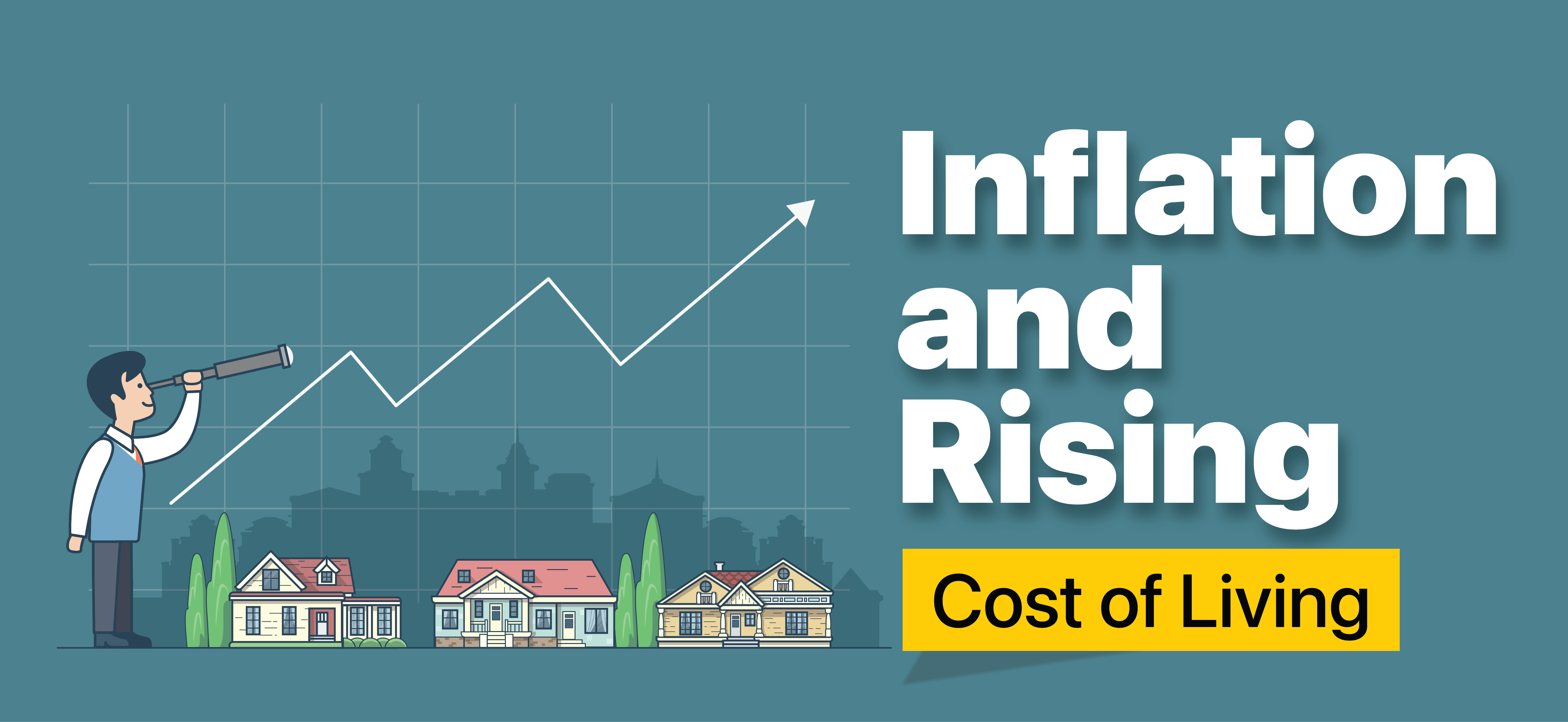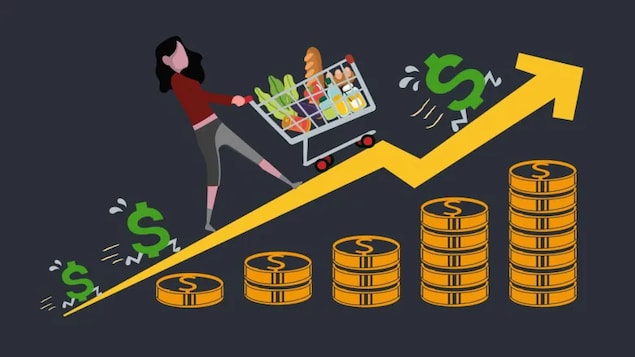Key Takeaways
| ⚡ Inflation in 2024 is leading to significant increases in the cost of living, with the prices of housing, food, energy, and healthcare rising rapidly. |
| ⚡ Supply chain disruptions, energy price hikes, and increased consumer demand are among the major factors contributing to inflation. |
| ⚡ Rising living costs are disproportionately affecting lower-income households, making it harder for them to afford basic necessities. |
| ⚡ Governments and central banks are implementing various measures, including interest rate hikes and subsidies, to combat inflation, but the effectiveness of these policies remains uncertain. |
Inflation and Rising Living Costs – 2024: Navigating Economic Uncertainty
Inflation has emerged as one of the most pressing economic challenges of 2024, with rising prices across key sectors driving up the cost of living for individuals and families worldwide. Consumers are facing higher costs in nearly every aspect of daily life—from housing and food to energy and healthcare. While inflation is not a new phenomenon, its current rate is at multi-decade highs, placing pressure on household budgets and increasing the need for effective financial planning.
The causes of inflation are multifaceted. Global supply chain disruptions, energy price hikes, increased consumer demand, and labor shortages are just a few of the factors contributing to the rising costs. Governments and central banks are responding with a variety of measures, such as raising interest rates and introducing subsidies, but inflation remains a persistent challenge. In this post, we’ll explore the current inflationary environment, its impact on different sectors, and strategies individuals and policymakers are using to navigate rising living costs.

"Inflation is hitting households harder than ever," says Jane Robinson, an economist at Global Economics Group. "The combination of higher prices for essentials like housing, food, and energy is squeezing disposable incomes and forcing consumers to adjust their spending habits."
"While inflation can be cyclical, the current economic conditions are making it more difficult for governments and central banks to bring prices under control in the short term."
What’s Driving Inflation in 2024?
Several factors are contributing to the inflationary pressures we’re seeing in 2024. One of the primary drivers is the disruption of global supply chains, which began during the COVID-19 pandemic and has continued due to geopolitical tensions, trade restrictions, and labor shortages. These supply chain bottlenecks have made it more difficult and expensive to produce and transport goods, driving up costs for consumers and businesses alike.
Energy prices have also skyrocketed, particularly due to the ongoing volatility in global oil and gas markets. This has had a direct impact on the cost of utilities, transportation, and manufacturing. Additionally, the post-pandemic economic recovery saw a surge in consumer demand, which further strained supply chains and contributed to price hikes across a range of goods and services.

How Inflation Is Impacting Key Sectors
Inflation is affecting different sectors of the economy in various ways. Let’s take a closer look at how the cost of living is rising in key areas:
1. Housing
Housing costs have been one of the largest contributors to inflation in recent years. The cost of buying a home has risen significantly, driven by a combination of low interest rates (in earlier years), limited housing supply, and increased demand. Rent prices have also surged, particularly in major cities where housing shortages are acute. For many renters and prospective homebuyers, these rising costs are making it increasingly difficult to find affordable housing.
2. Food
The price of food has risen sharply due to a combination of supply chain issues, rising fuel costs, and extreme weather events affecting agricultural production. Staples like meat, dairy, and grains have seen some of the steepest price increases. This has hit lower-income households particularly hard, as a larger share of their income is spent on food compared to higher-income groups.
3. Energy
Energy prices, including electricity, gas, and oil, have surged in 2024 due to geopolitical instability, especially in energy-producing regions, and disruptions in global energy supply chains. Rising energy costs affect not only household utility bills but also transportation costs and the production of goods, further contributing to inflation in other sectors.
4. Healthcare
Healthcare costs have continued to rise, driven by the increasing demand for medical services, advances in medical technology, and higher wages for healthcare workers. For consumers, this has led to higher premiums, out-of-pocket expenses, and prescription drug prices, putting additional strain on household budgets.
The Impact on Different Income Groups
Inflation is affecting different income groups in varying ways, with lower-income households bearing the brunt of rising costs. For these households, a larger portion of their income is spent on essentials like housing, food, and energy, leaving less room for discretionary spending. As prices rise, many are forced to make difficult choices between paying for rent, utilities, groceries, or healthcare.
Middle-income households are also feeling the squeeze, particularly in areas with high housing costs and expensive healthcare. While some higher-income households may be better equipped to absorb rising prices, inflation is still eroding purchasing power across the board, leading to a general decline in the standard of living.
Government and Central Bank Responses
In response to rising inflation, governments and central banks around the world are taking action to stabilize prices. The most common tool used by central banks is raising interest rates. Higher interest rates make borrowing more expensive, which in turn reduces consumer spending and business investment, theoretically slowing down inflation.
However, raising interest rates can also have the effect of slowing economic growth and increasing unemployment. This delicate balance is why central banks are being cautious in their approach. Governments are also introducing subsidies and social assistance programs to help lower-income households cope with rising costs. In some regions, rent control measures and energy subsidies are being implemented to protect consumers from the full impact of inflation.
How to Manage Personal Finances During Inflation
For individuals and families, navigating the challenges of inflation requires careful financial planning. Here are a few strategies to help manage rising costs:
- Budgeting: Reassess your monthly budget to account for higher costs in essential areas like housing, utilities, and groceries. Prioritize spending on necessities and look for areas where you can cut back on discretionary expenses.
- Debt Management: With rising interest rates, paying down high-interest debt, such as credit cards or variable-rate loans, should be a priority to avoid higher interest costs.
- Investing in Inflation-Protected Assets: Consider investing in inflation-protected securities, such as Treasury Inflation-Protected Securities (TIPS) or commodities like gold, which tend to hold value during periods of inflation.
- Building an Emergency Fund: Set aside money for emergencies to cover unexpected costs or job loss, especially during uncertain economic times.
- Negotiating Bills: Look for opportunities to negotiate better rates on recurring expenses, such as insurance, utilities, or internet services, to reduce the impact of rising costs.
These strategies can help households manage the financial pressures of inflation and maintain a level of financial stability even as prices continue to rise.
Which Sector Is Most Affected by Inflation?
Vote on the sector you believe is most affected by inflation in 2024:
Inflation and Living Costs Information
Key Focus: Housing, Food, Energy, Healthcare, Economic Impact
Key Players: Central Banks, Governments, Consumers, Businesses
Year: 2024
Primary Goals: Stabilize Inflation, Manage Living Costs, Support Vulnerable Groups

.jpg)

.jpg)



.jpg)

